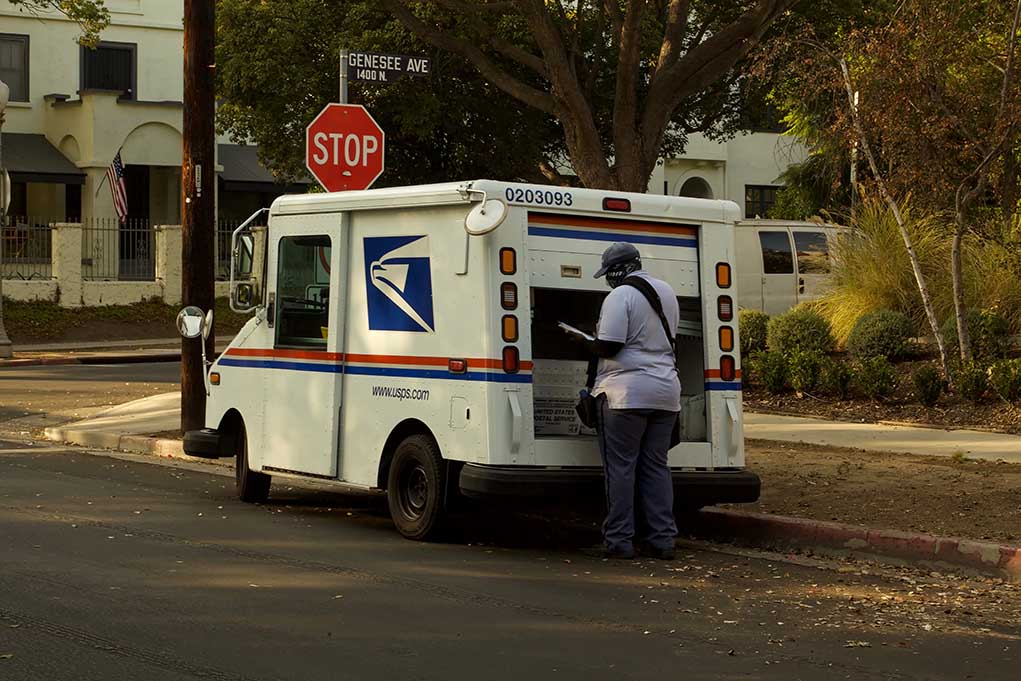
Democrats are alarmed as former President Trump’s USPS reforms resurface, sparking debate on postal service privatization and its impact on Americans.
Key Takeaways
- Trump suggests merging USPS under the Commerce Department, potentially paving the way for privatization.
- House Oversight Committee Democrats, led by Rep. Connolly, oppose the plans, highlighting risk to postal service autonomy.
- The Postal Service has been losing money, partly due to pension obligations, with over $9 billion lost last fiscal year.
- Current leadership changes, including Postmaster General DeJoy’s expected retirement, fuel reform discussions.
- Congressional approval is required for any major USPS privatization, which Democrats argue they won’t support.
Trump’s USPS Privatization Proposal Causes Stir
President Donald Trump is considering merging the U.S. Postal Service (USPS) with the Commerce Department. This move could lead to a fundamental transformation, affecting the postal service’s independent agency status. Democratic members of the House Oversight Committee express strong opposition, stressing potential threat to rural service reliability and advocating for congressional engagement in decision-making processes. The committee’s letter to the President urges abandoning privatization and preserving USPS’s autonomy.
Significant reshuffling is on the horizon, with Postmaster General Louis DeJoy planning retirement. The potential reform faces legal challenges, given USPS’s independent agency status under current law. Steps to incorporate the postal service into the Commerce Department heighten Democrat concerns, as they argue against increased prices and political interference compromising USPS services.
Financial Concerns and Privatization Debate
USPS has reported financial difficulties, with losses exceeding $9 billion in the last fiscal year largely due to pension obligations. This financial strain leads to privatization being considered for ensuring effective postal service operations. Trump asserts that merging might improve USPS functionality and address financial losses. The debate, however, revolves around ideological differences, with USPS historically serving Americans equally, without a profit motive. The service’s last-mile delivery relationship with e-commerce giants like Amazon further complicates the discourse on potential privatization effects.
“Your reported efforts to dismantle the Postal Service as an independent agency would directly undermine the affordability and reliability of the U.S. postal system. We urge you to abandon immediately any plans that would either privatize the Postal Service or undermine the independence of the Postal Service.” – Rep. Gerry Connolly (D-VA) and the panel’s other members
Privatization discussions often focus on market-driven efficiencies versus maintaining universal service obligations. The White House, while criticized for opaque intentions on the future of USPS, faces pressure from Democrats safeguarding postal services as constitutionally mandated by Congress. Any significant changes in USPS’s operations would require Congressional authorization, which Democrats foresee as unlikely.
Political Dynamics and Future Outlook
Congressional Democrats, particularly concerned regarding postal service accessibility in rural areas, emphasize continued efficiency and reliability in USPS’s mission. They argue Trump’s suggestions overlook long-term sustainability, potentially exposing postal operations to political whims and profit motives. Legal hurdles complicate privatization paths, demanding rigorous scrutiny and bipartisan navigation.
“Well, we want to have a post office that works well and doesn’t lose massive amounts of money. And we’re thinking about doing that. And it’ll be a form of a merger. But it’ll remain the Postal Service. And I think it’ll operate a lot better than it has been over the years. It’s been just a tremendous loser for this country. Tremendous amounts of money are being lost.” – Donald Trump, President of the United States
As discussions intensify, balancing USPS’s financial innovations with service commitments remains pertinent. As Democrats formally demand halting privatization initiatives, ongoing debates underline USPS’s role in the nation’s communication infrastructure, reflecting widespread concern over Trump’s restructuring ambitions.
Sources
2. The potential impact of a Trump takeover of USPS




